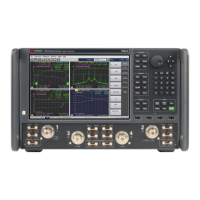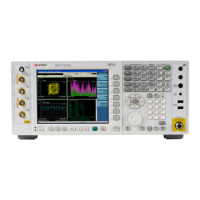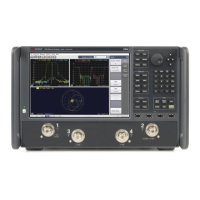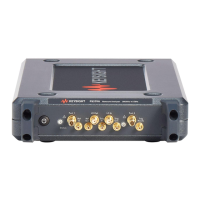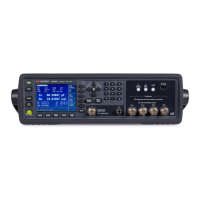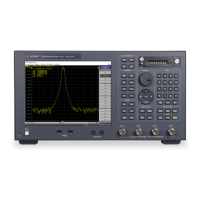3 Programming the Analyzer
IEEE 488.2 Common Commands
• Model
• Serial number
• Firmware version
Key Path
No equivalent key. See related key System, Show System.
Remote Command
*IDN?
Example *IDN? Returns instrument identification information, such as:
Keysight Technologies, N9020A, US01020004, A.01.02
Initial S/W Revision Prior to A.02.00
Operation Complete
The *OPC command sets bit 0 in the standard event status register (SER) to “1” when pending operations
have finished, that is when all overlapped commands are complete. It does not hold off subsequent
operations. You can determine when the overlapped commands have completed either by polling the OPC
bit in SER, or by setting up the status system such that a service request (SRQ) is asserted when the OPC
bit is set.
The *OPC? query returns a “1” after all the current overlapped commands are complete. So it holds off
subsequent commands until the "1” is returned, then the program continues. This query can be used to
synchronize events of other instruments on the external bus.
Remote Command
*OPC
*OPC?
Example INIT:CONT 0 Selects single sweeping.
INIT:IMM Initiates a sweep.
*OPC? Holds off any further commands until the sweep is complete.
Status Bits/OPC
dependencies
Not global to all remote ports or front panel. *OPC only considers operation that was initiated on the
same port as the *OPC command was issued from.
*OPC is an overlapped command, but *OPC? is sequential.
Backwards Compatibility
Notes
1. The ESA/PSA/VSA products do not meet all the requirements for the *OPC command specified by
IEEE 488.2. This is corrected for X-Series. This will sometimes cause behavior that is not
backward compatible, but it will work as customers expect.
2. Commands such as, *OPC/*OPC?/*WAI/*RST used to be global. They considered front panel
operation in conjunction with the GPIB functionality. Now they are evaluated on a per channel
basis. That is, the various rear panel remote ports and the front panel i/o are all considered
separately. Only the functionality initiated on the port where the *OPC was sent, is considered for
its operation.
3. *OPC used to hold off until the operation bits were cleared. Now it holds off until all overlapping
commands are completed. Also, earlier instruments did not wait for completion of all processes,
only the ones identified here (in the STATus:OPERation register):
Calibrating: monitored by PSA, ESA, VSA (E4406A)
Sweeping: monitored by PSA, ESA, VSA (E4406A)
Waiting for Trigger: monitored by PSA, ESA, VSA (E4406A)
144 EMI Receiver Mode Reference
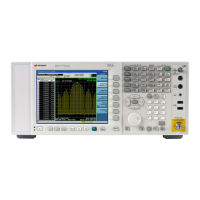
